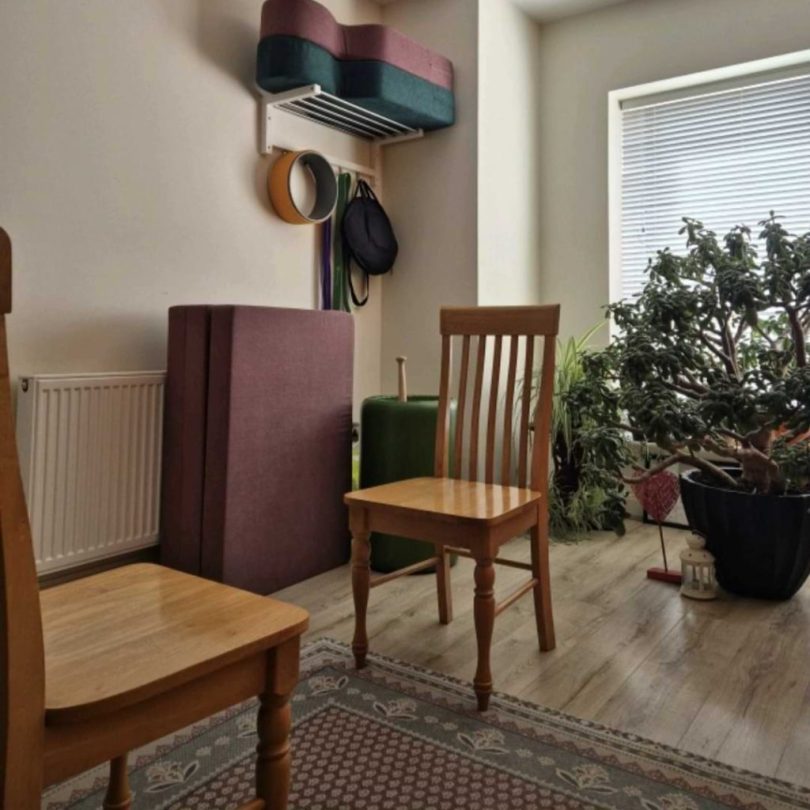In body-oriented psychotherapy, we explore how the body reflects our emotions and subconscious mind. By listening to bodily sensations, we uncover deep-seated pain and heal layer by layer. This approach empowers clients to navigate their unique journey, transforming wounds into strengths.
In body-orientated psychotherapy, we are the body and emotions; this is the respective and corresponding therapeutic approach. This therapeutic approach is not focused solely on the psyche but also on emotions (body sensations).
It is a journey from the head into the body.
The body will give us a reaction to the theme raised in the session. The subconscious mind sends the signal, and the memory reflects in the body. For example, cognitively we may want something, and a desire (ego) may be so strong that it gives us the strength to move toward obtaining it. But if there is no ease, if there is shortness of breath, indecisiveness, or other unpleasant body sensations, that is the system telling you that it is too much. And that is if you’re lucky enough to allow yourself to feel and experience the sensations in the body. Many of us may go into freeze mode. Those clients would tell me, ‘I am fine… It’s all fine.’
What is fine?
How do you know?
What is the sensation in your body?
How do you know?
The mind is a powerful animal, but the body keeps the score. The body is neurologically set up in a way that will show signals if you listen.
I had a conversation with one of my colleagues who had a client dealing with a topic I was personally addressing with my therapist: birthdays. A day that we celebrate the arrival of our existence into this world. If our existence was not welcomed, if our arrival was not cherished, if our being was not accepted, our implicit memory, our neurobiology, and our nervous system tell us the story.
This story manifests in various ways that have a common subject: insecurities, instability, lack of safety, and rejection of the world we live in.
Every birthday, I would become emotionally unstable. Throughout the years, this has taken various forms: from being overly happy and intoxicated with various substitutes (covering the pain), to aggression (covering sadness: it was everyone’s fault that I am not okay), and then depression (shame: what is wrong with me? I do not belong).
Listening to my colleague had me opening my heart wide with love and gratitude towards my therapist. A therapist who was there when I needed her the most, a therapist who listened and cared compassionately (felt my pain), a therapist who led me slowly into the deepest wounds of my being.
At the age of 46, I finally celebrated my birthday. It felt more like celebrating #4. But that’s for a different article.
Working with such a client is about understanding the theme. Curiously exploring the reasoning behind the direction he wants to take. Taking him into the sensation of the body as, together, we travel layer by layer into the subconscious mind and the beliefs behind it. Raising awareness of his approach to his pain and the reasoning behind the destruction.
Without forcing a certain direction, we peel back the layers until we reach the level that is enough for his system. Then staying in that layer of pain, holding hands with compassion and empathy, because there was no one there when that pain entered the systematic experience.
That moment becomes a healing moment.
But the key is to stay there for a while; otherwise, it just passes through the system. To build capacity, integration is the key. With integration comes capacity, and with capacity comes the strength to look further. With some more layers, where naming the pain occurs, the inner compass awakens and shows the path.
The path of raised awareness for the client’s unique journey. Empowering the client to listen to his inner voice, to find his own currently acceptable course of action. Holding hands, mirroring, and approving the course of action because this may be the only way he can take right now.
Next time will be a different journey. An endless journey with many layers of our existence, many layers of pain and acceptance, and many layers that need to be explored. But, with time, this journey becomes easier to handle and digest. Direction gains more fluidity because defence mechanisms have now lost strength due to healing. Wounds will still be there, but eventually, they become your superpowers and serve as a clear indication of your direction..
In my colleagues’ college, they cover body sensations and their importance. In my college, we dive deep into the importance of raised emotions within the body sensations. In other words, we dive deep into biology and neurobiology. Both work well, but what makes you more empowered in your personally desired direction?
Take control of your well-being now.
Book your session and start the transformative journey to a healthier, happier you.



